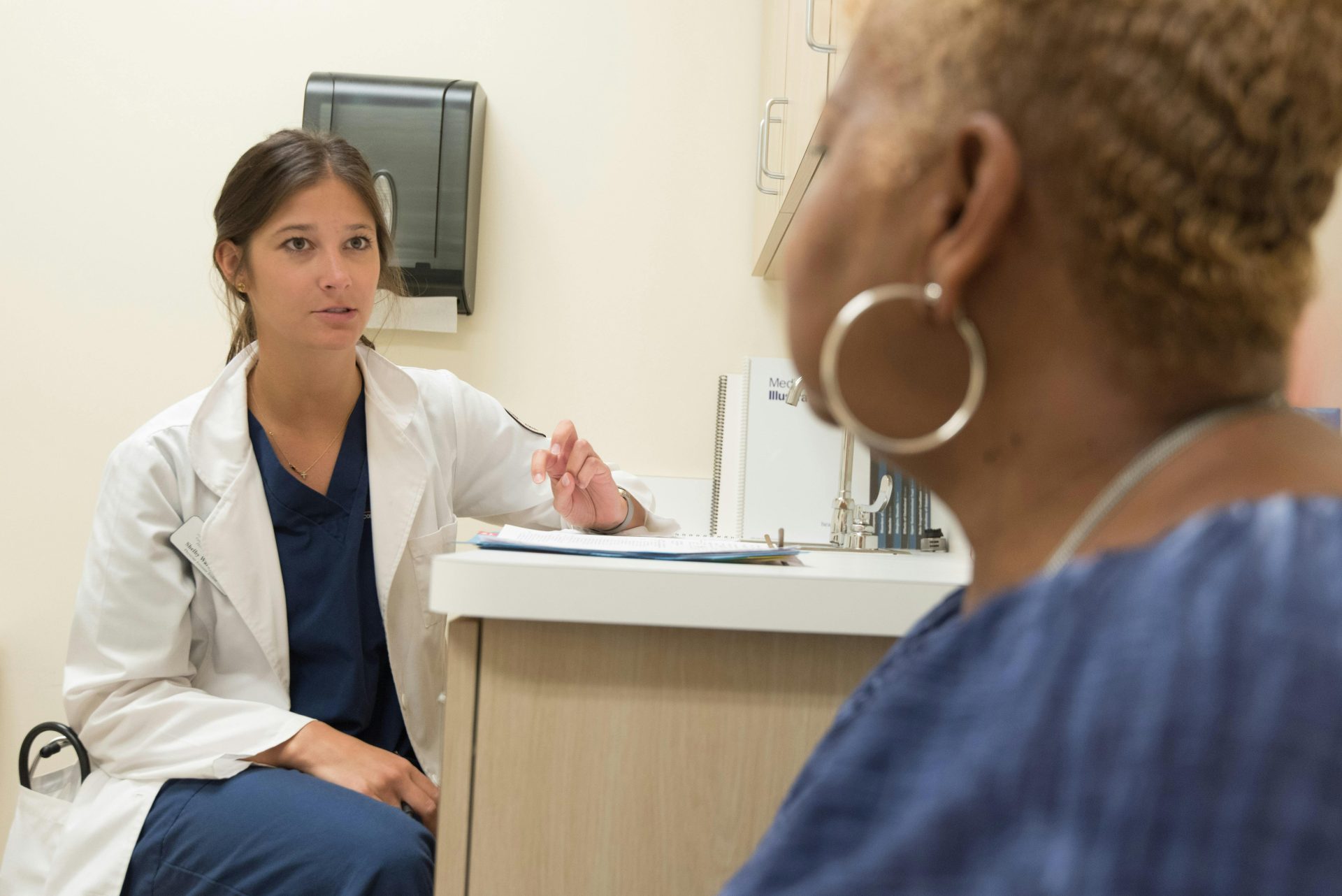When a person decides to pursue medical marijuana as another way to manage their ailment, an honest and thorough conversation with a doctor is very important. It’s not about convincing the doctor; it’s about providing the necessary information so they can make an informed recommendation.
The conversation should begin with a clear and honest description of your diagnoses and symptoms. Be prepared to detail how your health condition affects your daily life. Doctors want to understand the full scope of your condition, and explaining its debilitating nature is key.
You should be prepared to discuss the history of your condition. This includes mentioning any previous treatments you have tried, such as therapy, medication, or lifestyle changes, and explaining why they have not provided sufficient relief. A doctor needs to see that you have explored conventional options, which helps establish the medical necessity for an alternative treatment like cannabis.
Being knowledgeable about the different types of products, such as the roles of cannabidiol (CBD) and tetrahydrocannabinol (THC), demonstrates that you have conducted your own research and are serious about a safe and effective treatment plan.
A collaborative and open discussion helps the doctor understand your needs and determine if you are a good candidate for a medical card under your state’s regulations.
What do doctors look for during a medical marijuana evaluation?
To recommend a medical marijuana card, a physician’s evaluation is a thorough assessment to ensure that cannabis is a safe and appropriate health management option. Doctors are looking for clear evidence of a qualifying, severe medical condition and a demonstrated history of attempting other treatments without success or with too many side effects (intolerable).
This is why having detailed medical records — including diagnoses, a list of current and past medications, and notes on how your condition impacts your life — is crucial.
A doctor’s evaluation will also assess the patient’s overall health to identify any potential risks. They will look for any contraindications, such as a history of psychosis, heart conditions, or substance use disorders, which may make cannabis a less suitable treatment. Know that even if your provider isn’t comfortable, these conditions may require a nuanced approach with another experienced provider they may refer you to.
They will also gauge the patient’s understanding of cannabis as a medicine, including the difference between THC and CBD, various consumption methods, and the potential for side effects.
A doctor looks to establish a well-documented physician-patient relationship and to confirm that the patient’s use of medical cannabis is a necessary, well-informed, and medically justified decision.
How should you talk about your symptoms with a doctor?
For a doctor to fully grasp the impact of a debilitating condition and recommend medical cannabis, it is essential to move beyond simply stating surface details of the health condition. The most effective way to communicate is by painting a detailed and honest picture of your specific symptoms and their effect on your life.
Instead of vague descriptions, focus on the physical, psychological, and behavioral manifestations of your condition. For example, if you experience anxiety, specify how often you experience panic attacks, heart palpitations, trouble sleeping, or find yourself avoiding social situations.
Detail the severity of your symptoms and provide a timeline, noting how long you have been experiencing them and if they have worsened over time. The more specific you can be, the more a doctor can understand the gravity of your condition.
A physician’s evaluation will also consider if you have attempted other treatments, so being able to explain how therapy or medication provided insufficient relief is crucial. Provide a comprehensive and specific account of your symptoms. This allows the doctor to see the full, debilitating scope of your condition, which builds a stronger case for medical necessity.
Do you need a formal diagnosis before applying?
Yes, in most cases, you need a formal diagnosis before applying. A diagnosis is the starting point and the foundation for your entire application. Without one, you’re just describing symptoms, and that’s not enough to meet the legal and medical requirements of most programs.
For a doctor to consider your application, they need to interview and evaluate you, to see that your condition is real and that it falls into a recognized category. The process is similar to – but easier than – disability applications, like The Social Security Administration (SSA), for example, requires a “medically determinable impairment” that is backed up by “objective medical evidence” from an “acceptable medical source”. This isn’t just about a doctor believing you; it’s about them having the clinical and exam findings, like lab results or imaging scans, to support an official diagnosis.
A formal diagnosis connects your personal struggle to a recognized medical condition and shows that it’s severe enough to justify your application. Without a diagnosis, you’re missing the official stamp of medical authority that every evaluation relies on.
You might feel like your symptoms tell the whole story, but in the eyes of an evaluator, a diagnosis is the key that unlocks the rest of your information. It’s what allows them to look at your medical history, review your past treatments, and understand the full, debilitating scope of your condition as a medically justified issue.
What medical records should you bring to your appointment?
You should bring any and all records that paint a comprehensive picture of your health journey. A referral or heads-up from your PCP or another provider helps support your case, too.
Regardless, it all starts with a formal diagnosis. A doctor can’t recommend a specific treatment without first understanding your condition.
Next, you need to show the full scope of your condition and how it has been managed. You should bring a list of all your current and past medications, including prescription drugs, over-the-counter remedies, and even supplements. Be prepared to explain how each one worked — or, more importantly, how it didn’t provide sufficient relief, cost too much, or cause too many side effects.
It’s also important to have records of any other treatments you have tried, like physical therapy, injections, or surgeries. This helps the doctor see that you have explored conventional options and that cannabis is a necessary next step.
Finally, bring any relevant test results, such as blood work, X-rays, or MRIs. These reports provide objective evidence of your condition and its severity, which can strengthen your case.
A physician’s evaluation is thorough, including a possible physical exam. Having these records ready shows that you are serious and helps them make a safe and informed decision about your health.
READ: Ask a Marijuana Doctor: How to Get the Most Out of Your Appointment for Medical Cannabis
What conditions are most often approved for medical marijuana?
Many conditions are approved for medical marijuana, but a few stand out as the most common ones that doctors see and approve. The specific list can vary by state, but there are certain ailments that are almost universally recognized because of the severe, debilitating symptoms they cause.
The most common condition by far is chronic pain. Conditions like fibromyalgia, arthritis, and neuropathic pain are frequently approved because cannabis can help manage the persistent and often severe discomfort that other treatments have failed to address.
Other conditions beyond pain are very commonly approved, especially if they are linked to symptoms like severe nausea, muscle spasms, or loss of appetite. These include cancer and its side effects, like chemotherapy-induced nausea and vomiting.
Doctors also frequently recommend cannabis for conditions like multiple sclerosis, which causes severe muscle spasms and pain, and for epilepsy.
Mental health conditions like post-traumatic stress disorder (PTSD) are also on the list for many states. Patients with PTSD often find that cannabis helps with anxiety, sleep issues, and managing the emotional distress that comes with the condition.
Frequently Asked Questions
What should I say to my doctor to get approved for medical marijuana?
Talk to your doctor about your specific symptoms and how they have a severe impact on your daily life. Also, be sure to mention all the other treatments you have tried that have not provided you with sufficient relief.
Do I need medical records to talk to a doctor about cannabis?
Yes, you do. They provide objective evidence, like your official diagnoses, test results, and a history of past treatments, that a doctor needs to verify your condition and establish medical necessity. Without records, your claims are simply a personal account, but with them, they become a documented medical case.
Will my doctor automatically approve me for a medical marijuana card?
No, your doctor will not automatically approve you. A doctor’s professional responsibility is to conduct a thorough medical evaluation to determine if cannabis is a safe and appropriate treatment option for you. This includes confirming you have a qualifying condition and reviewing your medical history for any potential risks or contraindications.
What if my doctor refuses to recommend medical marijuana?
If your doctor refuses, the best course of action is to seek a second opinion from a physician who specializes in or is more knowledgeable about medical cannabis. Your doctor may have their reasons, such as a lack of familiarity with cannabis as a management option or a practice policy that prevents them from recommending it.
A different doctor, especially one who works with a clinic that focuses on cannabis recommendations, will be better equipped to evaluate your condition and needs.
Can I be denied a medical marijuana card even if I have a qualifying condition?
Yes, you can. Even with a qualifying condition, a doctor can deny you a medical marijuana card if they have a medical reason to believe cannabis is not a safe option for managing your health condition. A thorough assessment of your overall health will have them look for any contraindications, such as a history of psychosis, heart disease, or substance abuse. In some cases, a doctor might also deny a recommendation if they believe another conventional treatment is first-line and would be more effective.
How do I explain my symptoms to a doctor for MMJ approval?
To get approved for a medical marijuana card, you need to paint a detailed and honest picture of your symptoms. Instead of just saying you have pain, specify how it affects your ability to sleep, walk, or perform daily tasks. Focus on the physical, psychological, and behavioral impact of your condition, and provide a timeline of how long you’ve been experiencing them and if they have worsened over time.
Do doctors ask specific questions during a cannabis evaluation?
Yes, doctors do ask specific questions about your full medical history, including any past treatments you’ve had, and they will want to know if you’ve had any experience with cannabis before. They will also ask about your current symptoms and how they impact your daily life, which helps them tailor a treatment plan just for you.
Should I mention mental health symptoms when applying?
Yes, if you have any mental health symptoms, you should mention them. A doctor needs to be aware of your full mental health history to ensure that cannabis is a safe option for you. Being open and honest about your mental health symptoms, both past and present, is crucial for the doctor to make an informed and safe recommendation.






